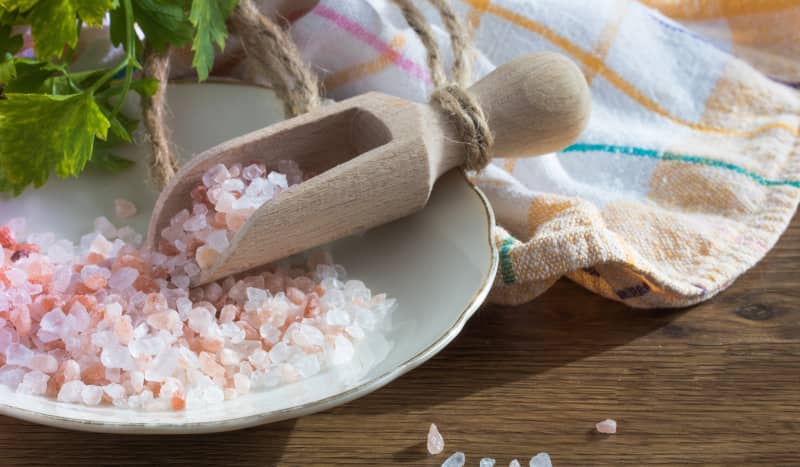
Salt In Food
Salt adds hugely to the taste of our food but too much salt can be very bad for us. Here we explain why this is.
Daily Guidance
Human tears, blood and sweat all contain salt. Too much is not good for you though and government guidelines suggest that you should avoid consuming more than 6g per day, although it is extremely difficult to accurately calculate the exact quantity that we consume each day. The sodium in salt (sodium chloride) is required in very small quantities by the body for various chemical reactions to take place.
Acting as a preservative and flavouring, it also has over 14,000 different uses, according to manufacturers today. It is thought that 75% of the salt you consume is through processed foods. Reducing consumption lowers the risk of developing high blood pressure and heart disease.
How To Calculate Salt Levels
It is possible to work out how much salt we consume each day by determining the amount of salt in each food and the exact amount of the foods that you eat. This figure may be misleading though as refined foods contain sodium and various other foods contain sodium too, which sometimes cannot be measured.
Reduce your intake through replacing foods that have a high sodium content with those that have a lower content.
Sodium x 2.5
If the packaging only contains information on the amount of sodium in the food, then it is possible to calculate how much salt is in each food product, by simply multiplying the quantity of sodium by 2.5. It is important to work this figure out as arteries and veins are used to transport blood which is pumped by the heart around the body.
High blood pressure puts strains on the arteries and veins. This can damage the heart as it has to work harder to pump blood at high pressure around the body. This can lead to heart disease and increase the chance of having a heart attack.
High Blood Pressure
Eventually, high blood pressure leads to the arteries becoming damaged and weaker, potentially resulting in strokes and heart attacks. Narrowing of the blood vessels (arteries, veins and capillaries) occurs as the walls of the blood vessels thicken and harden. This takes place as they are required to work harder because of the increased pressure. Reducing blood flow, this an lead to damage of the organs receiving the blood. Blood clots could result in the blood supply being cut off to a part of the body.
Eating too much sodium can increase the risk of high blood pressure as it makes you retain more water. The extra water in the blood vessels creates more pressure. Kidneys remove excess sodium from the body which helps to regulate blood pressure. Excessive consumption of sodium can damage the kidneys, making them less efficient. Some people have kidneys that are more efficient at removing sodium than others. With age, the effectiveness of kidneys diminishes.
Most Popular
- › Detox for Weight Management
- › Increase Metabolism with Exercise
- › Vitamins & Minerals in Foods
- › What is Healthy Weight Loss?
- › Being Vegetarian Diet Implications
- › Drinking Water - The Benefits of Water
- › Fat Burning Exercises
- › The Keto Diet Plan - High Fat, Low Carbs
- › What is a High Fibre Diet Plan?
- › Exercise Helps Weight Loss
You may also be interested in...
The Danger Of Too Much Salt
Most of us are vaguely aware that too much salt is not good for us. Need more advice how to cut salt and improve your diet on slimming.co.uk.Low Salt Diets
Discover how low salt diet plans can help make you healthier and also help you slim. With products now available for many foods containing less and less check the labels.Blood Group Diet
The Blood Group Diet Plan is the invention of naturopath, Dr Peter D’Adamo. Different diets depending on which blood type you are. Does it work? Is it fiction?Sources Of Food
Sourcing food nutrition information for you. Save time and hassle with informative groups and vitamins basics that will help you with your new diet and weight loss programsFood Nutrition Labels
Read more on food nutrition labels by checking our UK site. With advice and tips on drinks, recipes and more check slimming.co.uk to get the facts.
